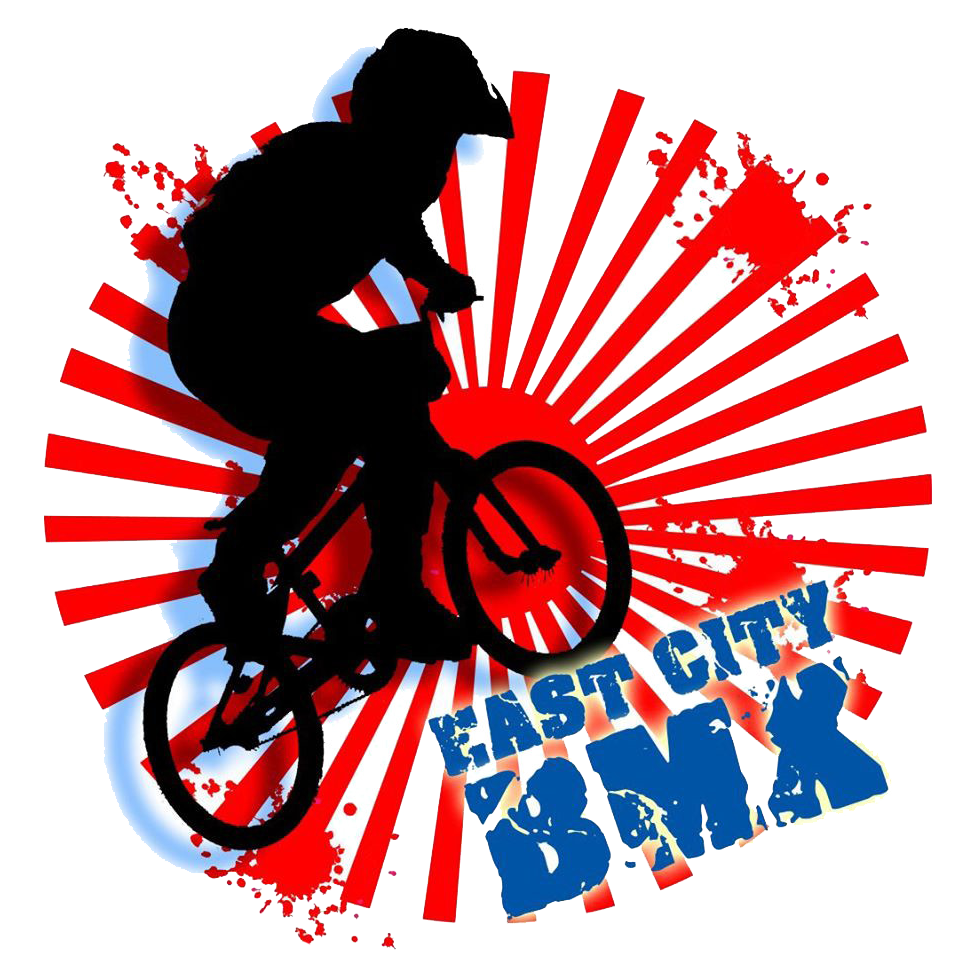GLOSSARY OF TERMS
BMX DICTIONARY FOR BEGINNERS
4130:
Refers to 4130 Chromoly, a metal alloy used abundantly in the production of BMX bicycles and parts. 4130 refers to the American Iron and Steel Institute’s code defining the composition of the alloy, the 41 specifically denotes a low alloy steel including Chromium and Molybdenum, which is where the name Chromoly comes from
20’s:
Twenty-inch bicycle wheels, the most common size wheel for BMX bicycles.
Axle:
The shaft on which the wheel revolves.
Bars:
An abbreviation of handlebars.
Berm:
A corner on a track built up on the outside of a turn to create a banked curve.
BMX:
Abbreviation for bicycle motocross.
Bottom Bracket:
The mechanism at the bottom of the bicycle frame, which holds the spindle and crank.
Brakes:
Any bicycle braking system which works by opening and closing two brake shoes on the rim in a clamping motion, like jaws.
Brake Lever:
A lever mounted on the handlebar used for activating the brake.
Bunnyhop:
Riding along and lifting both wheels off the ground, the starting point for almost all BMX tricks.
Cables:
Steel wires braided into cables and sometimes covered with plastic coating. Cables are used to connect the brake levers to the brakes.
Case:
Coming up short on a jump & the back wheel of the bike hits the peak of the landing.
Chain Stay:
The part of the bicycle frame that runs parallel to the chain. It connects the bottom bracket to the rear dropouts.
Chain Wheel:
A one-piece front gear. The chain wheel is attached to the bottom bracket and crank.
Clipless Pedals:
Hook or “clip” to your clip less shoes. Some clipless pedals have a cage around the outside of the pedals.
Crank:
The L-shaped metal arm to which the pedals are attached.
Chromo:
Refer 4130.
Chromoly:
As above.
Cruiser:
A Bicycle with 24” wheel diameter.
Dead Sailor:
A jump that goes wrong where the rider goes stiff and lands without performing a trick
Double:
A form of ramp consisting of a separate launch and landing with a gap in between
Down Tube:
Part of the bicycle frame, which slants downward at an angle. It runs from the head tube to the bottom bracket.
DNS:
Designation on a moto sheet that a rider “Did Not Start” in any particular race.
Drivetrain:
The assembly unit on a bicycle consisting of the chainwheel, chain, and freewheel.
Dropouts:
Small, slotted openings, which hold the front and rear wheel axles.
Entry Fee:
Paid to register for any sanctioned event.
Expert:
Highest level of amateur competition.
Frame:
The main part of a the bicycle, on which all the smaller parts are attached. Consists of a top tube, down tube, seat stays, chain stays, seat tube, and head tube.
Fork:
The double-pronged section of the frame, which holds the front wheel in place.
Freewheel:
A one-piece rear gear that allows the rider to back-pedal. Bearings are built in.
Gear Ratio:
A number, which indicates the relationship between the two gears and tells you how much work a particular combination of gears will do.
Grips:
Rubber or Plastic cover who goes on the handle bars at the end to aid in grip.
Headset:
Bearing set for which your front end rotates on and your fork/handle bars slide into.
Head Tube:
A short vertical tube at the very front of the bike. The front fork fits inside the head tube.
Hole Shot:
Taking the lead position out of the starting gate and going into the first turn.
Hub:
Cylinder, which holds the axle of each wheel.
Huck:
To throw oneself haphazardly into a trick or manoeuvre
Intermediate:
Skill level for riders with limited experience and ability.
Jump:
Any ramp designed to propel bicycle and rider into the air.
Lip:
The very top of the transition on a ramp, jump or earth mound, just before the coping
Lane:
Position 1 thru 8 on the starting gate.
Main Event:
Final class race, after all qualifying has taken place, to determine class placing.
Manual:
The act of riding a wheelie without pedaling typically over the top section of various jumps.
Moto:
a.) A single racing heat. b.) Any riders specific race.
Moto Board:
An area where the moto sheets are posted before and during the race.
Moto Number:
Number corresponding with any specific race (moto).
Moto Sheet:
Paperwork displaying the races in moto number order.
Novice:
New rider to the sport.
Number Plate:
Displays riders earned or temporary number for identification purposes
Platform Pedals:
Are the most commonly used pedals for trails, street, and ramps. They have a platform that your foot rests on with little pegs that stick to your shoe.
Rhythm Section:
A series of jumps or rollers back to back on a track that pose as an obstacle.
Rims:
Round part of the wheel that the tires attach onto.
Registration:
Where you go to sign up to compete in a race (moto)
Roller:
An obstacle on a track that is rolled over as opposed to being jumped.
Sandbagging:
Intentionally allowing other rider(s) to pass during a main event or within any round of a total points race so as not to gain wins towards classification advancement.
Seat Stays:
Section of the frame, which runs from the seat tube to the rear wheel dropouts.
Seatpost:
The tube, which holds the seat and goes into the frame.
Staging Area:
The area where the riders gather for loading into the gate.
Starting Gate:
Flat formed area with a hinged portion. This is where each race commences.
Stem:
The part connected to the forks that hold the handlebars. Sometimes referred to as a gooseneck.
Step-Up:
A jump in which the landing is elevated above the launch.
Sprocket:
Same as a chain wheel or either the front or rear gear assembly. Sprockets are strong. They are a combination of a chain ring and a spider together
Table Top:
A jump on a track that is completely level or flat all the way across it from the lip to the landing.
Top Tube:
The top horizontal tube on a bicycle frame, between your head tube and seat tube.
Track Director or T.D.:
a person who runs and maintains all aspects of a BMX track. Does all this for no pay to help the kids and parents who love BMX. Thanks to all track operators in BMX!
Volunteer:
A VERY special person who voluntarily undertakes or expresses a willingness to undertake help for the track and riders for no pay or free merchandise.


 Admin Login
Admin Login